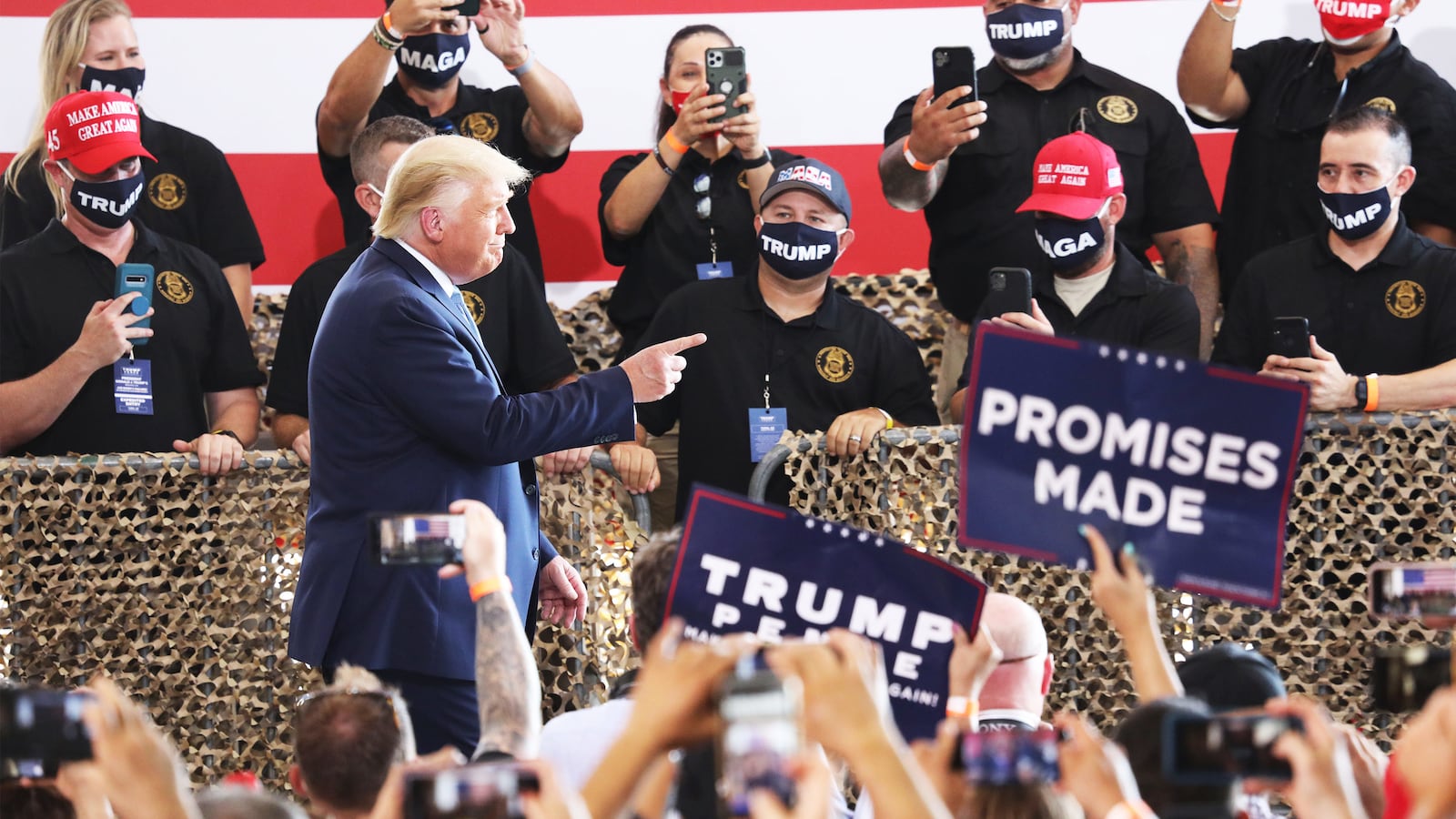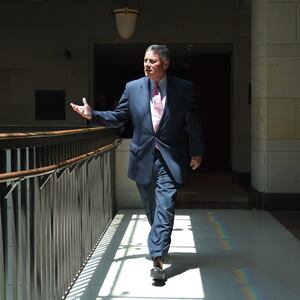The nearly thousand-page Republican-led Senate Intelligence Committee report released Tuesday, the culmination of a three-year bipartisan investigation, leaves no room for doubt: Donald Trump’s 2016 campaign exposed our country to significant counterintelligence risks.
While partisans can argue about whether or its report’s findings constitute “collusion” with the Kremlin, the report flatly states that the Trump campaign “presented attractive targets for foreign influence, creating notable counterintelligence vulnerabilities.”
One operative who exploited the chaos was Paul Manafort, who had worked closely with Russian oligarch Oleg Deripaska between 2004 and 2009. The Intelligence Committee found that Deripaska “conducts influence operations,” in coordination with and under the direction of the Russian government. Manafort, who had run multi-million dollar influence campaigns for Deripaska “in numerous countries” of interest to Russia, volunteered in 2016 to work as Trump’s campaign chairman—for free. While a normal campaign might have found Manafort’s ties to Deripaska troubling, the Trump campaign did not. Manafort, of course, was later convicted of bank fraud, tax violations and related crimes unrelated to the Trump campaign.
The report states that Manafort worked closely with Konstantin Kilimnik, whom it describes unequivocally as “a Russian intelligence officer.” Special Counsel Robert Mueller had concluded only that Kilimnik had “ties” to Russian intelligence. The report also states that “the Committee obtained some information suggesting Kilimnik may have been connected to the (Russian intelligence service’s) hack and leak operation targeting the 2016 U.S. election.” According to the report, Manafort repeatedly shared secret campaign information with Kilimnik. Like Mueller, however, the committee was unable to determine why—in part because Manafort and Kilimnik covered their tracks. For example, Manafort and Kilimnik used a technique called “foldering,” in which they used the same email account, left messages for each other in the “drafts” folder and then read the messages without sending them.
The committee found that Manafort's presence on the campaign and proximity to Trump “created opportunities for Russian intelligence services to exert influence over, and acquire confidential information on, the Trump Campaign.” Manafort's “willingness to share information with individuals closely affiliated with the Russian intelligence services, particularly Kilimnik and associates of Oleg Deripaska, represented a grave counterintelligence threat.”
The committee also found that the infamous June 2016 Trump Tower meeting between senior campaign advisers and Russians also exposed the campaign to even more foreign influence than previously known. Manafort, along with Donald Trump, Jr. and Jared Kushner, met with Russian contacts for the purpose of obtaining incriminating information about Hillary Clinton. One of the Russians at the meeting was lawyer Natalia Veselnitskaya. According to the report, her connections to Russian intelligence “were far more extensive and concerning than what had been publicly known,” noting that information she used at the meeting was also used in an operation with ties to Russian President Vladimir Putin, and that the Trump Tower meeting was part of an effort coordinated by Russia. This meeting had been planned in a series of email messages offering documents and information harmful to Clinton as “part of Russia and its government's support for Mr. Trump.” In response, Trump, Jr., famously replied, “If it’s what you say, I love it.” The meeting was a product of the Trump family’s relationship with another Russian oligarch, Aras Agalarov, and his son, a musician, whom Trump had met at the Miss Universe pageant in 2013. The committee concluded that the senior Agalarov was “likely” acting at the behest of the Russian government.
Rather than reporting this outreach to the FBI, the Trump campaign officials met with the Russians. It appears that the meeting ended without the promised information, but Trump, Jr., exposed the campaign to blackmail by responding to the email, and compounded the error by taking the meeting.
George Papadopoulos, a campaign foreign policy adviser, also exposed the campaign to counterintelligence risk by seeking to secure a meeting between Trump and Putin. The committee found that Papadopoulos’s efforts introduced him to individuals who raised counterintelligence concerns, and made him an unwitting “prime intelligence target and potential vector for malign Russian influence.”
In addition to creating vulnerabilities by using inexperienced or shady campaign staff, the Trump campaign also actively welcomed assistance through the hacked and stolen emails of the Clinton campaign. The report found that Trump campaign staff sought advance notice about releases of stolen emails by WikiLeaks, “created messaging strategies” in anticipation of their release and encouraged further leaks. The Trump campaign also “publicly undermined the attribution of the hack-and-leak campaign to Russia and was indifferent to whether it and WikiLeaks were furthering a Russian election interference effort.”
In stark contrast to Attorney General William Barr’s characterization of these events before the House Judiciary Committee as the “bogus Russiagate scandal,” the Senate report reaches the same conclusions as Mueller—that the Russian government attacked our election to help Trump become president, and some members of Trump’s campaign welcomed the assistance from a hostile foreign adversary.
But this report goes further by demonstrating how Trump’s win-at-all cost strategy and reckless practices exposed his campaign, and our election, to foreign influence. Among the report’s recommendations is one that campaigns notify the FBI of all foreign offers of assistance and to reject the use of foreign material, especially if it has been obtained through the violation of U.S. law.
With another election right around the corner, both parties would be wise to set aside politics and acknowledge the threat posed by Russia to interfere in our election.







